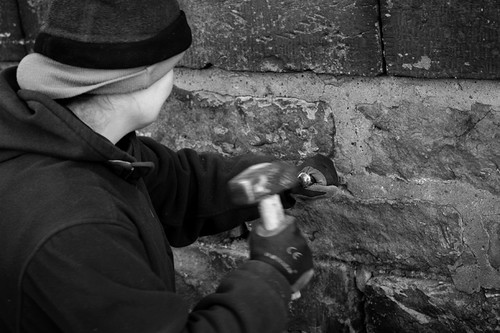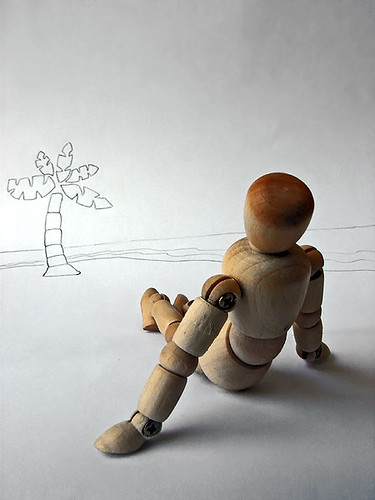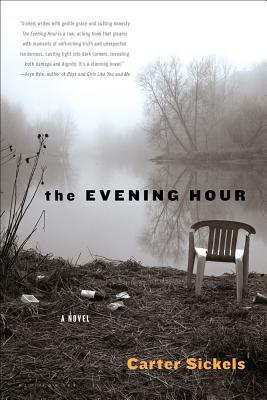That’s how I’d have capitalized this recent article by The Atlantic, which asked that rather big question. Describing Alex Jenni, a French biology teacher who recently won the Prix Goncourt, France’s top literary award, the article noted,
In the Alexis Jenni school of thought, a writer may be someone, anyone, with a compulsion to scrawl or the conviction of having something to say. A writer is not defined by his career, but the simple act of writing regularly. And authors who found success through the muck of making ends meet have taken that approach for some time now, in practice at least. […]
T.S. Eliot, on the other hand, was inclined to keep his day job even after it was financially necessary. When the Bloomsbury group offered to set up a fund that would allow him sufficient funding to become a full-time writer, the poet turned them down. “This idea that Eliot should be freed from the drudgery of work misses the point that he was actually very interested in the minutiae of everyday life—he was a commentator on the quotidian,” British Library curator Rachel Foss told The Guardian.
For modern-day counterparts to Eliot, there’s Days of Yore, a website that interviews artists “about the years before they had money, fame, or roadmaps to success, and inspires you to find your own.” Here, Deborah Eisenberg discusses her “late start” to writing and Jennifer Egan describes how she went on an archaeological dig. But this isn’t just a nostalgic look-what-crazy-job-I-did-when-I-was-young-and-hungry site. The site’s co-founder and editor, Astri von Arbin Ahlander, a self-described “aspiring artist” highlighted in the Atlantic piece, argues that the day job is a way of life for today’s writer:
Says Von Arbin Ahlander, “We’re kidding ourselves if we think we can make a living on writing.” As for the romantic ideal of the leisurely writer life, slowly crafting one’s masterpiece in the calm solitude of a big, empty house: “I mean, that’s over,” she added, “Unless you’re a trust fund baby.”
So if 99% of writers today need to have a “real job”—beyond pounding furiously at a typewriter all day—then what DOES make a writer a writer? One commenter put it bluntly: “I became a writer when people started to pay me for my writing. Before that, I was an aspiring writer.” Another took the oppoite view: “I dislike the very concept of ‘being a writer’. That is something fakes and wannabes say at bad parties to impress the foolish. […] I’m quite happy to say, if the subject ever comes up, ‘I write’, but never ‘I am a writer’.”
Here’s a better question: Why such angst about a self-imposed title, a person who writes versus a Writer? It’s a question of proving your seriousness. Most other professions have clearly defined borders: lawyers have law degrees and bar memberships; doctors have M.D.s and board certifications. Realtors, health inspectors, schoolteachers like Alex Jenni–each needs certain objective qualifications and credentials. You know they’re serious because they’ve spent time in school and training; you know they’re (ostensibly) qualified because they’ve been tested and granted licenses. So you turn over your lawsuit, or your appendix, or your child, and let the experts work.
Writers operate outside these boundaries. You don’t need an MFA–or even a high school diploma–to write. You just pick up your pencil and go. Anyone can call himself or herself a writer, and anyone can be a writer. Democratic? Yes. But that also makes it hard to prove your seriousness, which is really the topic the Atlantic–and the commenters on the article–delicately circle around. Who’s just a dilettante, and who’s a capital-W writer? Is it a career or just a temporary occupation? Something you happen to do, or something you are?
 Recently a stonemason (yes) came to repair the foundation of my house. He made up haiku while he was working, he told me, reciting one to me as he chiseled away the old mortar. But he was quite firm: he was not a Writer. He was a stonemason, the last in a long line of stonemasons, the “and son” of DeAngelis and Sons. That was his art. The haiku, he insisted, wasn’t writing, just something he did to keep his brain active.
Recently a stonemason (yes) came to repair the foundation of my house. He made up haiku while he was working, he told me, reciting one to me as he chiseled away the old mortar. But he was quite firm: he was not a Writer. He was a stonemason, the last in a long line of stonemasons, the “and son” of DeAngelis and Sons. That was his art. The haiku, he insisted, wasn’t writing, just something he did to keep his brain active.
So was he a writer? Are you? The answer may all lie in your attitude towards your art–or towards that “something you do” just to keep your brain active.
Further Reading:
- A related question: do you have to be a genius to create a work of genius?
- By the way, does “work” writing count as “real” writing? In the Huffington Post, Holly Robinson says yes.







